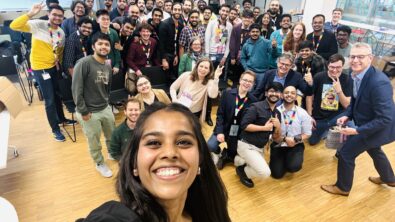Students embrace intelligent IC design in Summer School

Siemens Digital Industries Software’s global academic partner program has an extensive history of supporting influential IC design competitions in China. Siemens recently participated in the 4th annual National College Student Embedded Chip and System Design Competition and the 1st annual National College Student Chip Design Summer School.
The competition closely integrates the development needs of the embedded chip and system application industry, so that students can fully grasp the relevant knowledge and skills of different technical levels such as chip design, software and hardware adaptation system optimization and application scheme design. The summer school during the competition event was organized by National Integrated Circuit Education Integration Innovation Platform in Peking University, School of Microelectronics in Southeast University, and Nanjing Integrated Circuit Training Base. The opening ceremony of the 1st annual National College Student Chip Design Summer School was held in Jiangbei New District, Nanjing, China in July. Representatives from universities and enterprises, and student representatives attended this event.
The summer school aims to train first-class integrated circuit design talent through the joint effort of governments, universities, and enterprises, which is crucial to the development of IC design industry. The summer school attracted more than 300 students from over 50 universities.

Technical experts from academia and industry conducted seminars and lectures focusing on the hot issues in the intelligent IC design industry. Technical experts Kara Liu and Yaqi Sun from Siemens EDA delivered two workshops during the summer school to nearly 200 university students.

In the workshops, Kara introduced the basic simulation process and usage skills of Modelsim/Questa in detail, and Yaqi introduced the methodology of implementing a system-level AI design in FPGA with HLS. In addition, design examples were presented to help students better understand the usage of the EDA tools. Siemens also provided the license of the EDA tools for the students. Teaching assistants from Siemens EDA provided support in software installation and usage. Organizers and students gave quite positive feedback to Siemens workshops .



Students of the summer school have the chance to combine the technology with real projects. The practice in chip design related technology and tool applications enables students to have a deeper understanding of the IC design industry.
Siemens will continue to support the cultivation of talents in the field of IC design with professional knowledge and skills. We welcome students who are interested in IC design to pay attention to the technical workshops that Siemens will hold in the future.


